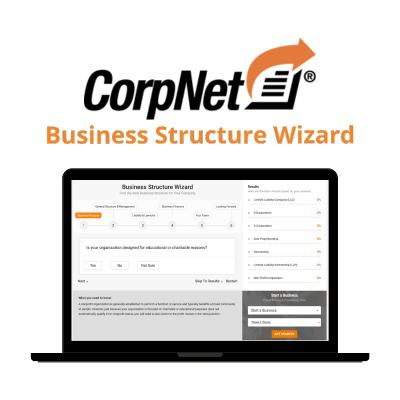The vending machine industry is one that has evolved and steadily grown over the last decade. As consumers’ lives get busier and people seek convenience and time-saving options while on the go, vending machine operators have many opportunities.
According to Research and Markets, the global vending machine market size was estimated at $21.3 billion in 2020 and it is expected to reach $31 billion by 2027. That is a growth rate of 5.5%. The U.S. vending machine market is estimated at $5.8 billion with a growth rate of 8.9%. Those numbers are impressive and they are fueling Americans’ desire to start a vending machine business.
Have you been thinking about how to start a vending machine business? In this article, we’ll review some of the key areas needed to help get you started.
Advantages of Operating a Vending Machine
Is starting a vending machine company right for you? Some of the characteristics that attract entrepreneurs to this type of business include:
- Low startup costs – Usually, vending machines can be financed. Aside from a computer, printer, and phone to manage your business and a vehicle for servicing your route, you likely won’t need other equipment.
- Flexibility to set your own schedule – Generally, you’ll have the freedom to restock vending machines and collect money whenever it suits you.
- Ability to easily change your product selection – For example, let’s say you have a snack machine and a certain flavor of Doritos isn’t selling well. You can quickly decide to replace that product with a different flavor or an entirely different snack.
- Controlled growth – You can set the pace for how quickly you want your business to grow. Some business owners maintain their day job as they gradually ramp up their vending machine business. You can choose to, as time and finances allow, add machines to your route when you’re ready to expand.
- Simplicity – After you have secured contracts with business locations and you have placed your machines, running a vending business is not overly complicated. You must maintain your machines to keep them in good working condition, restock machines as needed, and collect money from your machines. You’ll also have administrative duties, of course, such as recording your financial transactions, reporting and paying taxes, and handling any customer-related issues.
Three Startup Options
Regardless of which method you choose, you will want to discuss legal matters with an attorney and financial and tax matters with an accountant or tax advisor. Costs can vary widely when starting a vending machine business. The method of getting into the industry, the types (and number of) vending machines that you use, and the products that you choose to sell will impact how much you spend upfront and on an ongoing basis.
1. Buy an existing vending machine business
Buying an existing vending machine business or route can be a fast track into the industry. It gives aspiring vending entrepreneurs instant customer accounts and a secured revenue stream. It’s critical to thoroughly research opportunities like these before diving in. Find out why the current owner wishes to sell and examine all aspects of the business to discover any deal-breaking issues. For example, inspect the machines to make sure they function correctly, review existing contracts with clients and vendors, and scrutinize the financial reports.
2. Buy a vending machine franchise
Franchise opportunities provide an established business model for starting a successful vending machine business. Buying a vending machine franchise allows entrepreneurs to start a business with much of the administrative and operational infrastructure in place.
Top vending machine franchise opportunities include:
- Clothing Bin
- Fresh Healthy Vending
- Healthy Cravings
- IceBorn
- Naturals2Go
- Pharmabox
- Power Drop Shop
- Reis & Irvy’s
- Xpresso Delight
Keep in mind that franchise costs and levels of support vary from one to the next. Generally, there’s an up-front franchise fee to buy into the opportunity, and then the franchisor takes a percentage of the franchisee’s profits or charges the franchisee a monthly fee. Read the franchise agreement carefully to determine if there are any unreasonable restrictions (such as on where you get your machines and products). Also, make sure you understand your responsibilities for operating your franchise unit according to the franchisor’s rules (for example, does the franchisor require you to form a legal business entity, such as an LLC or corporation).
3. Start your own vending machine business
Naturally, this option involves the most work. However, it also provides the most freedom to start a vending machine business that matches your vision. Starting from scratch means sourcing machines and locations to place them yourself. Because option 3 involves the most work and considerations, let’s take a look at the general steps to make it happen successfully.
Fourteen Steps to Start Your New Business
1. Decide what you want to sell
You’ll want to confirm there’s a viable opportunity to succeed before jumping into running a vending machine business. Do plenty of market and industry research to assess the potential and decide what you want to sell in your vending machines.
Some products can do well almost everywhere, whereas others may be appealing to people with particular interests or preferences. For example, coffee, water, soda, and snacks may sell well nearly anywhere. Salads, sandwiches, and microwaveable meals might be most attractive to people in offices or colleges. Keep in mind that food and drink items have expiration dates. And if you’re selling perishable items, you’ll need to be especially conscious of matching your order volume with what you can sell.
You might also consider non-food items, like over-the-counter pain medications, which could attract customers in restrooms at office buildings, malls, shopping centers, and transportation hubs.
Below is a list of other non-food items that are sold in vending machines. As you can see, the possibilities are extensive!
- Laundry supplies (detergent, fabric softener, dryer sheets)
- Electronic accessories (phone chargers, earbuds, headphones)
- Skincare products
- Hair products (shampoo, conditioner, styling products)
- Toiletries and hygiene products (toothbrushes, toothpaste, soap, feminine hygiene products)
- T-shirts
- CBD products (oils and lotions)
- Fitness merchandise (supplements, towels, gloves, hair ties, earbuds)
- Dog treats
- Beach supplies (sunscreen, goggles, toys)
- Nail polish
- Pens and pencils
When looking for a reliable source of products, consider their price per-unit for the items you want to stock in your machines. Depending on the inventory you plan to maintain, you may be able to negotiate some sizable bulk discounts.
As you analyze your options, realize that it’s not always higher-priced vending items that yield the best returns. They usually have more overhead costs associated with them (per-unit cost, dispensed from machines with advanced features, etc.). You may be remiss in not considering lower priced items dispensed from simple vending machines.
For example, a $75 refurbished bulk vending machine selling stickers for 50 cents at a busy grocery store may deliver a better profit than a higher-end item from a computerized machine. The sticker machine surely won’t make anyone rich overnight, but it may prove to be a viable way to earn a reliable stream of passive income.
2. Determine the vending machine features you want
After you’ve decided what you want to sell, decide what features you’ll need and want in your vending machines. Some of the special features and capabilities available include:
- Functionality to accept credit and debit card payments
- Interactive touch or voice-activated screens
- LED lighting
- Graphic and branded wraps that go around the machine to make it more visually interesting and attractive
- Combination food and drink dispensing
- Software for remotely monitoring stock levels in the machine
3. Determine from where you’ll buy or lease your vending machines
Some sources of vending machines include:
- Manufacturers
- Wholesalers
- Specialty retailers and online sellers
- Craigslist
- Amazon
- eBay
To reduce your capital investment costs, you might consider buying used vending machines or leasing machines.
4. Determine locations for your machines
Just like any retail business endeavor, the location of a vending machine will affect its sales success. Areas with a lot of foot traffic provide the best opportunities. And, of course, locations should be a good match for the type of products your machines sell.
Places where vending machines often do well include:
- Airports
- Apartment complexes
- Bus stations
- Car dealerships
- Grocery stores
- Gyms
- Hospitals
- Hotels and motels
- Laundromats
- Malls
- Manufacturing facilities
- Nursing homes
- Office buildings
- Schools
- Shopping centers
- Train stations
- Universities
Realize that there may be ADA compliance standards to adhere to when placing vending machines in certain locations. Also, consider how safe your machines and products will be. Locations prone to theft or vandalism will cost you time and money if you have to repair or replace machines.
5. Choose a business name
Carefully consider what you want to name your business. Your business name will be one of the brand assets to set your company apart from its competition.
After deciding on the business name you would like to use, make sure it’s not already taken by another vending machine company (or similar type of business) in your state by conducting a corporate name search.
6. Decide on your business entity type
The business structure you select for your company will have legal and tax implications. Your decision will also affect the time and costs involved in keeping your company in compliance and good standing with the state.
Popular small business structures include:
I think it’s important to note that with sole proprietorships and partnerships, a business and its owner(s) are considered the same tax-paying and legal entity. Therefore, if the company gets sued or runs into financial issues, the business owner is held personally responsible. That means the entrepreneur’s personal assets may be at risk of being taken to satisfy the legal claims and debts of the business.
With the other structures, however, the business owner and the business are considered separate entities, thus providing a degree of personal liability protection.
It’s wise for entrepreneurs to consult an attorney and accountant or tax advisor for guidance on which business entity type will be most advantageous for their situation.
7. Designate a registered agent
Companies that will operate as an LLC, S Corporation, or C Corporation must appoint a registered agent in the state where they’re formed. A registered agent is an authorized party that will accept “service of process” (legal and government notices) on behalf of the business.
To be a registered agent, an individual or company must have a physical street address in the state where the vending machine business is registered. For your convenience, CorpNet provides registered agent services in all 50 states.
8. Register your new vending machine business with the state
Registration paperwork must be filed with the state to form an LLC or incorporate a vending machine business. An LLC must file Articles of Organization, and a corporation must file Articles of Incorporation. There might be other filings, too (such as the S Corporation election).
States don’t usually require sole proprietorships and partnerships to submit formation paperwork. However, if a vending machine business will use a business name other than one that includes the owner’s legal first and last names, it will need to file a DBA (Doing Business As). You may have also heard of DBA referred to as a “fictitious name.” The purpose of a DBA is to inform the public of who is operating a business.
The costs to register a business vary by state. States’ government websites provide details, and most states make their forms available online. It’s critical to prepare business formation paperwork correctly to avoid processing delays. Consider asking CorpNet to assist you in preparing and submitting business registration, S Corp, and DBA paperwork. Our filing experts have expertise in handling business formation forms in all 50 states.
9. Obtain an EIN
Any business that will have employees or that is registered as an LLC or corporation in the U.S. or U.S. Territories must obtain an Employer Identification Number (EIN). You may hear an EIN referred to as a Federal Tax ID Number. The IRS issues EINs for free to individuals that are the responsible party for a business and that have a valid Taxpayer Identification Number (SSN, ITIN, EIN). To ensure your application form is accurate and processed quickly, ask CorpNet to handle the EIN paperwork for you.
10. Open a business bank account
Having a dedicated bank account for business activities not only makes accounting and tax time easier, but it is also essential for maintaining the “corporate veil” between business owners and their companies. As I mentioned earlier, LLCs and corporations are considered separate legal entities from their owners. But when business and personal finances are commingled, a court of law might determine that the corporate veil has been pierced. When that happens, entrepreneurs may lose their liability protection and put their personal assets at risk. There are other strong reasons, as well, for having a dedicated business bank account.
11. Obtain any necessary business licenses and permits
It’s important to research any federal, state, and local laws and regulations that your vending machine business must comply with. I encourage entrepreneurs to talk with their attorney. Also, CorpNet’s business license services can identify all applicable requirements and even prepare and submit the required forms to obtain vending machine licenses and permits.
12. Sign contracts with business or property owners and managers at vending sites
Businesses and property owners will likely expect you to compensate them for allowing you to install your vending machines on their premises and for the electricity your machine uses. Typically, compensation is paid in the form of a commission that’s a percentage of a machine’s gross sales. It’s critical to spell out commission rates, terms, and conditions in an agreement.
What is a reasonable commission percentage? Some vending industry experts say seven percent is the norm, while others say as much as 25 percent is appropriate. Ultimately, a commission rate should satisfy the party providing your location while providing you with an acceptable profit margin. So, run the math before sealing your deals!
Some of the points that most vending machine agreements cover include:
- The parties entering into the agreement
- The length of the agreement
- The type of machine(s) and products sold
- Location(s) of the machine(s)
- Compensation
- Responsibilities of parties related to machine damage, maintenance, and service
- Notification about machine failure
- Exclusivity provision (if applicable)
- Rights to add, remove, or replace machines
- A termination clause (for voiding the contract if there’s a breach of contract or the location proves to be unprofitable)
This is just a sampling of what a vending machine contract might include. As with any legal document, it is helpful to have an attorney either create the contract or, at the very least, review it to ensure it is fair and serves your needs.
13. Purchase business insurance
There are also risks associated with starting a vending machine business. From consumer equipment injuries and spoiled food to vandalism, you’ll want to make sure your equipment and business are protected. As a vending machine operator, you have a number of insurance policies to choose from and these include general liability insurance, commercial auto insurance, and workers’ compensation insurance.
14. Keep track of your business compliance responsibilities
Just like any kind of business, a vending machine company must remain up to date on all of its tax filings, reports, licenses, and other compliance requirements to stay in good standing with the state, local municipalities, and the IRS. Failing to take care of compliance obligations can result in fines, penalties, loss of liability protection—and even administrative dissolution of the business. Attorneys and tax professionals can advise on what the responsibilities are and the due dates. An easy way for you to stay on top of your upcoming filings is by using our free Compliance Portal. Not only do we give you a simple way to track your deadlines, but we can also prepare and submit the filings and reports for you.
CorpNet’s Can Help
After you’ve discussed all the legal, financial, and tax considerations with licensed professionals, CorpNet is here to assist you with completing your business registration forms and applications. Our team of document filing experts has experience helping entrepreneurs in all 50 states to start their companies and keep them compliant. Contact us today to start fulfilling your entrepreneurial dreams!

Choosing a business structure can be a tough decision for the new business owner. CorpNet wants to make the process easier.
This free, online tool helps small business owners navigate the process of picking the right business structure for their new business.





